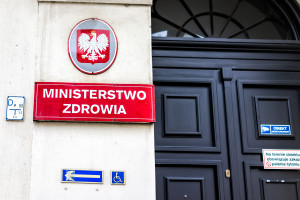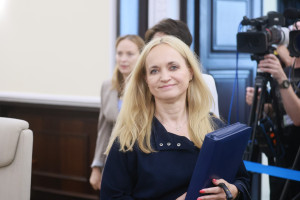Michał Byliniak on changes to the Code of Civil Procedure: they restore the possibility of fair decisions

- - We positively perceive the fact that the published draft amendment to the Code of Civil Procedure proposes to repeal certain provisions concerning securing claims in intellectual property matters - writes Michał Byliniak, director of ZP Infarma, in a commentary on the amendment to the Code of Civil Procedure
- This includes the provision introduced in 2023 that limits the time limit for filing an application for security in intellectual property matters to 6 months.
- He believes that the existing provisions limited the court's ability to assess exceptional situations.
- - The amendment therefore only restores to the courts the possibility of taking into account many factors in order to issue decisions that are fair and justified by the circumstances of a given case - he emphasizes
"Intellectual property is the foundation of every economic sector's development, but it's particularly crucial for the innovative pharmaceutical industry due to the importance of its products for entire societies. Intellectual property rights provide inventors or creators with legal tools to protect their inventions or works, but only for a limited time," reminds Michał Byliniak, General Director of the Employers' Association of Innovative Pharmaceutical Companies (IFARMA).
- This, in turn, is an incentive to dynamically invest in new drug therapies that address unmet medical needs in the area of many common diseases, including oncology, cardiology, diabetology, neurology, as well as in the area of rare diseases - he adds in a commentary on the amendment to the Code of Civil Procedure.
Intellectual property protection is therefore the basis for investing in the long, complex, risky and expensive process of delivering modern medicines to patients, which translates into better efficiency of the healthcare system and contributes to the development of the economy by improving the health condition of society.
Developing a new drug takes an average of 12-15 years, costs approximately 8.6 billion PLN, and carries a high risk of failure. Every year, the pharmaceutical industry invests over 200 billion PLN in European research and development.
Currently, 8,000 potential new drugs and vaccines are in the research phase, demonstrating that we live in an era of unprecedented medical innovations, made possible, among other things, by a law that not only provides patent protection but also provides legal tools to protect against infringement.
The regulations limited the court's ability to assess exceptional situationsTherefore, we welcome the fact that the published draft amendment to the Code of Civil Procedure proposes to repeal certain provisions concerning securing claims in intellectual property matters, including the provision introduced in 2023 that limits the time limit for filing an application for securing claims in intellectual property matters to just 6 months.
It should be emphasized, however, that the amendment in no way eliminates the importance of the rightholder's response to a violation of their rights. The draft amendment clearly states that the timeliness of the requesting party's actions will still be assessed, but not based on a strict deadline, but rather within a broader analysis of the legal interest. In turn, the strict six-month deadline blocked justified delays in filing an application for injunctive relief, resulting, for example, from protracted settlement negotiations, a temporary suspension of product commercialization, or a complex evidence-gathering process.
It is worth noting that courts, even before the amendment, took into account the response time, often finding that a significant delay may indicate acceptance of the infringement, and thus eliminate the need to provide security.
The same applies to the proposed amendment to abolish the obligation to report pending invalidation proceedings. Abolishing this obligation does not mean that these circumstances cannot be taken into account. When assessing the plausibility of claims, the court may still consider a high risk of invalidation and, for example, consider pending invalidation proceedings.
Let's also remember that Polish courts have the power to adjudicate flexibly. Patent infringement cases are heard by specialized divisions equipped with the tools to apply consistent criteria, without the need to impose rigid statutory restrictions. Previous regulations limited the court's ability to assess exceptional situations, which drew criticism not only from theorists but also from practitioners adjudicating in intellectual property courts.
The amendment therefore only restores to the courts the possibility of taking into account many factors in order to issue decisions that are fair and justified by the circumstances of a given case.
The payer's need to introduce cheaper alternatives is understandable, but...Particularly unfounded are the opinions that changes to the Code of Civil Procedure may hinder access to cheaper equivalents of drugs, lead to the withdrawal of currently available drugs or even limit patients' access to treatment.
First, the proposed amendment to the Code of Civil Procedure does not pose any risk of currently available generic drugs being withdrawn from sale or reimbursement lists, which were legally introduced to the market after patents expired. Second, even any legal safeguards granted by the court do not mean a lack of access to treatment, as patients are still able to access reimbursed innovative drugs, guaranteeing uninterrupted treatment.
Intellectual property protection solutions are intended to ensure a balance between the incentive to develop innovative drugs and the transfer of technology to the generic industry. The need for payers to introduce cheaper equivalents of innovative drugs is understandable. However, it must be firmly emphasized that this need cannot override the fundamental right to intellectual property protection and limit the courts' authority to adjudicate in these matters.
Undermining the importance of patent protection not only for the innovative pharmaceutical industry, but for every branch of the economy, as well as for culture and the entire world of science, is an extremely risky action and may bring many negative consequences for the number of clinical trials conducted, the development of scientific staff, the economic situation of producers, the scale of employment, the development of other industries, those directly and indirectly related to the pharmaceutical sector and every other sector of the economy.
Copyrighted material - reprint rules are specified in the regulations .
rynekzdrowia










